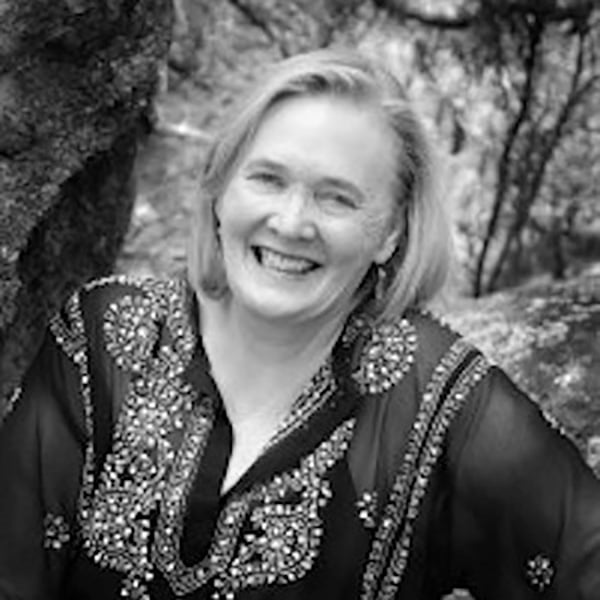Sobering Development: Neurofeedback and Addiction
 Susan Adams “lives and breathes” the world of recovery and has committed the better part of her life to helping addicts. A certified NeurOptimal® trainer, Susan is part-owner of TreeHouse Learning Community, an innovative facility that prepares young adults in recovery for success in higher education.
Susan Adams “lives and breathes” the world of recovery and has committed the better part of her life to helping addicts. A certified NeurOptimal® trainer, Susan is part-owner of TreeHouse Learning Community, an innovative facility that prepares young adults in recovery for success in higher education.
NeurOptimal® caught up with Susan over the summer to talk neurofeedback and addiction.
NeurOptimal®: What is your background and how did you come to know so much about addiction and the brain?
Susan Adams: I want to be clear up front that I’m not a doctor; nor do I profess to be. I was Pre-Med in college and definitely like to keep up on all scientific research and psychology regarding addiction. But a lot of what I know comes from my personal experience working with alcoholics and addicts. I’m also a recovering alcoholic myself with 20 years of continuous sobriety.
NeurOptimal®: How did you develop TreeHouse’s program?
Susan Adams: The TreeHouse Learning Community was designed over a three year period by a team of approximately 100 professionals with expertise in the fields of recovery, education, art, business, leadership and medicine. The concept of a sober learning community was managing partner Dr. Molly McGinn’s dream. She ultimately enlisted me as a partner in the business. Together we have about 50 years of experience helping young adults in recovery.
After years of working with young adults in recovery what really struck me was how fragile they are in their first year of recovery/sobriety. College is an especially difficult environment for anyone who is an addict and trying to stay sober.
NeurOptimal®: Can you elaborate a bit more on that?
Susan Adams: Well, think about it. Within that first year of recovery -when young adults return to college- they are actually going back to a place that worships drug and alcohol abuse. Here in the U.S. and Europe, college is the place where kids go to have fun. They form friendships; hang-out, socialize and start to really party. Binge drinking, illegal drug use –it’s all part of the “expected” college experience. There is a huge pull to join in the partying so they can feel like they belong.
For college students who are early in their sobriety, returning to college is a very dangerous time. They’re walking into a place where there’s drugs and alcohol all around them at a time when they are trying to stay sober!
TreeHouse’s mission, is to keep recovering addicts sober so they successfully identify a career path and focus on getting an education.
NeurOptimal®: And how exactly does TreeHouse provide that?
Susan Adams: At TreeHouse, we provide a sober living community where students can attend college with like-minded people who value sobriety. With the proper support to maintain their sobriety, it is easier to resist the temptation of drinking or using to belong.
At TreeHouse we spend a lot of time helping students connect or reconnect with what truly excites them. If they are doing or studying what they love, drugs and alcohol become a barrier to activities that bring them happiness. Boredom and unhappiness can bring on a relapse. For many boredom was the reason they started self-medicating with drugs and alcohol. As hard as it may be to believe or understand, part of the healing journey of addicts and alcoholics if to discover that life can be fun and interesting without medicating.
NeurOptimal®: How is the learning environment at TreeHouse different from the traditional college experience?
Susan Adams: In addition to a sober environment, our facility provides “Learning Coaches.” Many alcoholics, no matter how intelligent, can have educational deficiencies because literally or figuratively, they weren’t “present” in the classroom. They were in an altered state of consciousness and unable to process what was being taught. They may have “blacked out” an entire year or more of their education. Needless to say, they are usually behind academically and need extra help to catch up.
Also we assume young people in their teens or twenties are great at technology. To avoid detection, they can text on their cell phone while it is still in their pockets! But the truth is, many of these young adults don’t know how to save a Word document or attach a document to an email.
Addicts and alcoholics are also notorious procrastinators. At TreeHouse, we track their homework assignments and college papers to be sure they are handed in on time but also teach them time management so they can develop the skills to meet deadlines.
We also give them additional support for their more challenging classes. If we know Math is a difficult subject for them they are assigned a tutor from the beginning of class.
NeurOptimal®: How did you find out about neurofeedback?
Susan Adams: I had my first experience of neurofeedback about 10 years ago. I actually started with a different system (not NeurOptimal®). I was suspicious, but tried it anyway. After my first session, I experienced profound focus; a moment of clarity. I was very excited but, of course, it didn’t last long. I did several more sessions but never felt benefits after the first one.
The type of neurofeedback that I used was based on operant conditioning and forced my brain waves into patterns associated with high performance. Ultimately I decided the process was too invasive and I didn’t feel comfortable with that. For that reason and the lack of performance, I started to look around at other systems.
A dear friend of mine, Dr. Marta Elders, who holds a Ph.D. in Psychotherapy, was using NeurOptimal® and that was how I initially heard about it. I starting using NeurOptimal’s system myself and then brought it to Treehouse Learning community as part of our program.
NeurOptimal®: There have been some compelling studies recently regarding neurofeedback and addiction. Can you talk about that?
Susan Adams: Yes, there was the William C. Scott, B.S.W. study, “Effects of an EEG Biofeedback Protocol on a Mixed Substance Abusing Population.” It was a double-blind study. Of the alcoholics and addicts who underwent 42 sessions of neurofeedback while in treatment and attending AA meetings weekly, 77% were sober after one year. Of the group of alcoholics and addicts who were in treatment and attended AA meetings who did NOT receive neurofeedback, only 7% remained sober after one year.
I live and breathe in the world of recovery, so these results are very encouraging. In Prescott, Arizona with a population of only about 40,000 people, there has been as many as 7 deaths in one week from substance abuse. When young people relapse on heroin it is a life and death situation; it is not uncommon for them to die. Many of the young women I work with have been on heroin since they were 13 years old.
NeurOptimal®: It seems that prescription drugs have become a social problem as well.
Susan Adams: Yes, I think so. If you’re a kid and you’re taking prescription drugs for ADHD, depression or some other condition – and your parents are taking prescription drugs – then why wouldn’t you do cocaine in your 20’s to self-medicate? What I am trying to say is, the stigma is not there. Taking drugs in our society has become the norm so whether they are legal or illegal doesn’t seem to enter into the decision-making of young people.
NeurOptimal®: Has NeurOptimal® played a role in helping the addicts you work with stay sober?
Susan Adams: Definitely.
NeurOptimal®: Why do you think NeurOptimal® helps addicts stay sober?
Susan Adams: First I would like to say that I am skeptical when people say neurofeedback “works” on addiction. I think this is a dangerous overstatement.
What I can safely say is this; one of the most important reasons why people engage in addictive behavior –whether it’s substances or sex or food or whatever- is because it makes them “feel better.” NeurOptimal® neurofeedback can help people to feel better by eliminating or easing symptoms associated with depression, anxiety, social phobias and other form of “dis-ease” or discomfort. In effect, the need to soothe oneself by engaging in addictive behaviors in lessened.
I believe neurofeedback gets at the core of what drives addicts to use or relapse in the first place. Anxiety, depression – these are the underlying conditions that can lead to an addict’s need to self-medicate. It is the tragedy of alcoholic and addicts and why I feel compassion for them. They can barely stay in their own skin and that’s why they use, because they can’t stand it anymore. Studies show NeurOptimal® neurofeedback training can help alleviate these uncomfortable symptoms for alcoholic and addicts so they can more easily make the choice to not engage in the addictive behavior.
NeurOptimal®: Are there any challenges with using NeurOptimal® in your program?
SA: Young people don’t always know what NeurOptimal® brain training is doing for them. For many, these are feelings (underlying conditions) they’ve struggled with since childhood. They feel better but they want to associate it with being sober because they have worked so hard to get sober. They don’t always say “Oh that’s the neurofeedback!” I usually have to help them in making the link to their healing with questions like, “Did you notice anything different about how you handled a stressful situation this week?” Then there is usually an answer like, “Oh yeah, I handled that situation totally differently!” It is when I walk them through how they handled the situation that they realize that they were less reactive, more mature, didn’t procrastinate, etc..
NeurOptimal®: At NeurOptimal®, we like to call it “the new normal”.
Susan Adams: Exactly. Sometimes you don’t even notice [the improvement] until someone points it out to you.
NeurOptimal®: What is your sobriety success rate after young adults leave TreeHouse?
Susan Adams: TreeHouse has been open for only three years and we stay very connected with our kids after they leave. We want to stay connected to them and for them to have a sense of a connection with us. That’s part of the reason we only take any more than 15 young adults; staying connected isn’t easy for addicts. Addicts tend to want to isolate. That said – we know where every student we’ve ever had is and approximately 80% of them have stayed sober!

Leave a Reply
You must be logged in to post a comment.